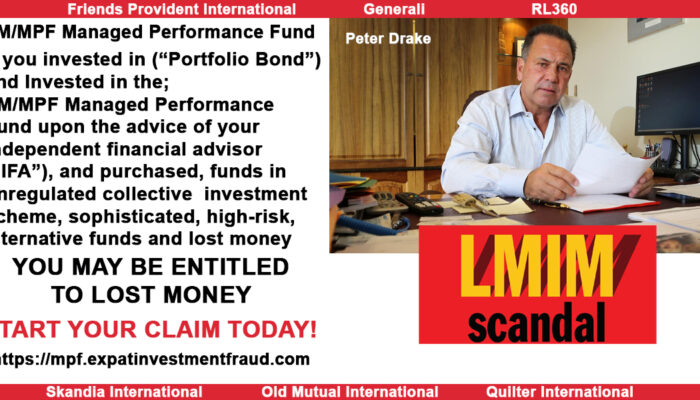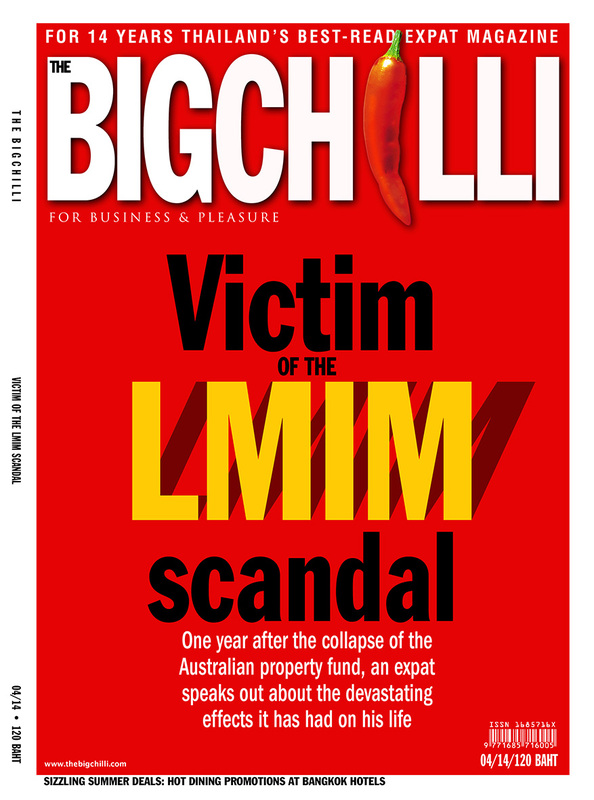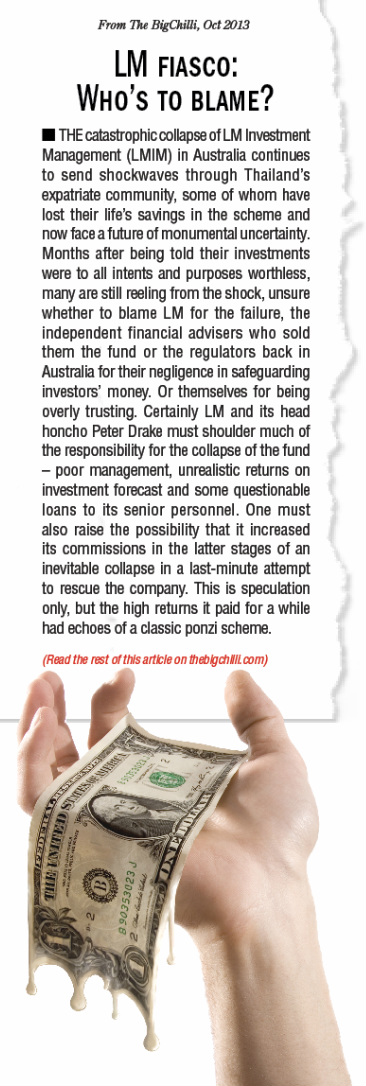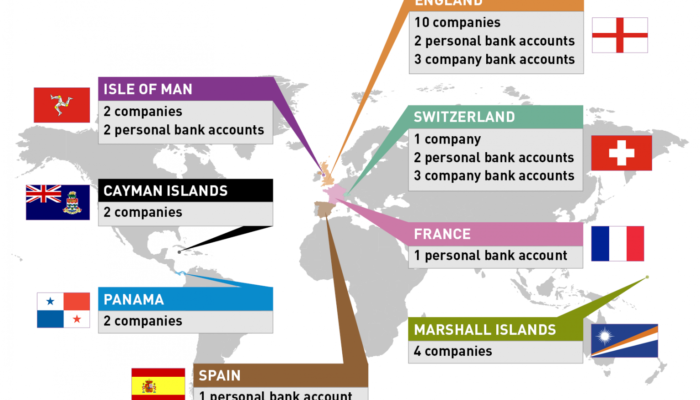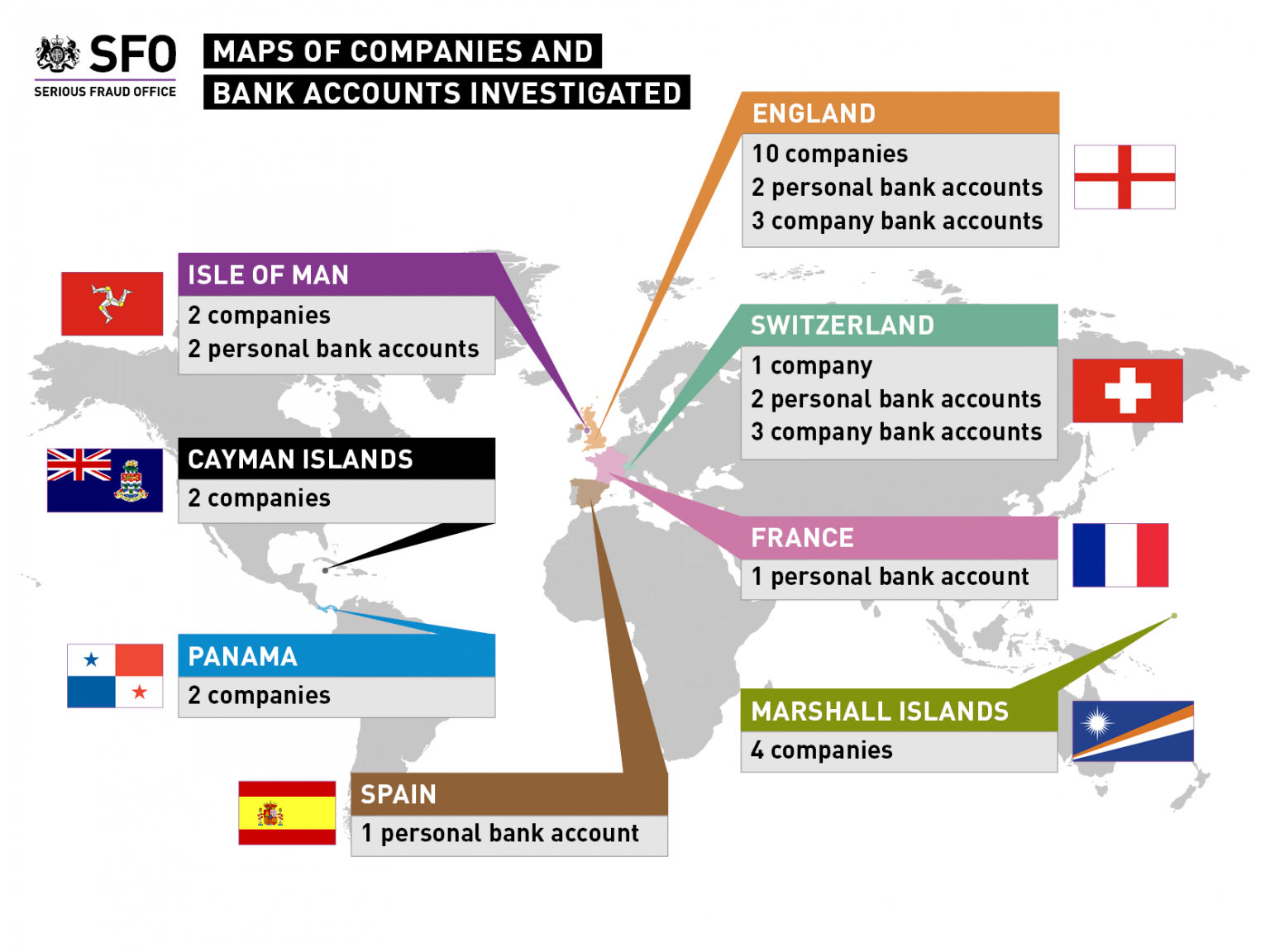LM/MPF Managed Performance Fund If you were a victim of the LM Investments, mis-management of funds, fund fraud, Breach of trust with a fraudulent intention, or otherwise known as a Ponzi scheme. There is still hope of recovering your lost money. Between 2009 and 2013, LM Investments Pty Ltd (LM), was the fund manager of LM Managed Performance Fund (LM/MPF) (Gold Coast Australia). LM/MPF was approved by the Insurers, to be placed on the Bond platform and recommended to the IFAs as intermediaries for the Insurers.
The IFAs recommended investment in the LM/MPF and other LM products to clients between 2009 and 2013. As Bondholders, these clients were also clients of the Insurers. The LM/MPF was reviewed by the Insurer’s and the valuation statements of the LM/MPF were sent to clients by the Insurers between 2009 and 2013. LM operated as the Responsible Entity (the fund manager), for the LM First Mortgage Income Fund (LM/FMIF). The LM/FMIF was frozen in 2009 with no redemption payments and went into receivership on 8 August 2013, with BDO being appointed as receivers. BDO has estimated a return to investors, as of June 2016, of less than 15 cents in the dollar, and over AUD$300 million in losses for thousands of investors. In 2009, LM and its directors, irrespective of the losses in LM/FMIF, established and marketed the LM/MPF fund to approximately 5,000 international investors – raising approximately AUD$430 million between 2009 and 2013. The fund had an investment memorandum rather than a prospectus and was designated for professional investors only and not for retail investors. The investment memoranda were provided to the Insurers for sharing with investors. This did not happen. The investment memoranda had instructions and documentation as to how to make an investment in the fund. The Insurers would complete the documentation to make an initial investment thereby establishing themselves as the professional investor. Thereafter, for each subsequent investment, the Insurer was required to complete further documentation. This documentation required a warranty that no laws associated with the investment had been breached. Clearly, this warranty would cover the registration of IFA, product, and Insurer. In or about 2010, LM and one of its directors, Peter Drake, made an application to the Insurers to admit LM/MPF onto its Bond platform. The application was accepted following due diligence of LM/MPF by the Insurers. That review would have revealed that one of LM’s other funds, namely LM/FMIF, was then suspended from trading and was unable to pay investors. The fund is now in the hands of a liquidator. Despite this knowledge, the Insurers accepted LM/MPF on its bond platforms. Further, in relation to LM the insurers in their due diligence ignored serious red flags. When the FMIF (First Mortgage Income Fund) was suspended in 2009, Friends Provident International and Quilter (Old Mutual International) should have questioned the validity of the LM MPF. It became apparent that most of the assets the LM MPF invested in had first mortgages held by LM’s FMIF and also were Peter Drake developments (the Director of LMMPF and the Responsible Entity (Trustee) LM Management. Basic enquiries by the FPI and Quilter (OMI) in their due diligence would have revealed this and the conflict of interest involving Drake. LM marketed LM/MPF to IFAs in the jurisdictions, announcing that it had been admitted onto the Bond platforms by the insurers. IFAs in the jurisdictions promoted, marketed, and sold to investors LM/MPF via the Insurer’s Bond products. Elderly UK investors deposited substantial amounts of their life savings into LM/MPF. In or about 2010, because of concerns raised about the slow payment of redemptions, the Insurers suspended LM/MPF from its Bond platform, and its staff attended LM on the Gold Coast, Australia, and conducted a review. In or about late 2010, the suspension was removed from LM/MPF and the fund continued on the Bond platform organized by the Insurers. The IFAs in the jurisdictions continued to market the Bond products and LM/MPF on the Bond platform between 2010 and March 2013. There were no warnings or disclosures sent to investors by the Insurers, to indicate that they had raised concerns about LM/MPF and had suspended it for a time on their Bond platform. In March 2013, LM/MPF went into administration, and then receivership, owing approximately AUD$430 million to 5,000 investors internationally. Elderly UK investors are many of those who lost all their funds. If you have purchased LM/MPF Managed Performance Fund and or other LM Group funds including the Trilogy Wholesale FMIF, through a trustee or direct on the insurer’s platform and have lost money you may be entitled to recover money lost. Please visit our website and complete the questionnaire join the group action today! https://expatinvestmentfraud.com

